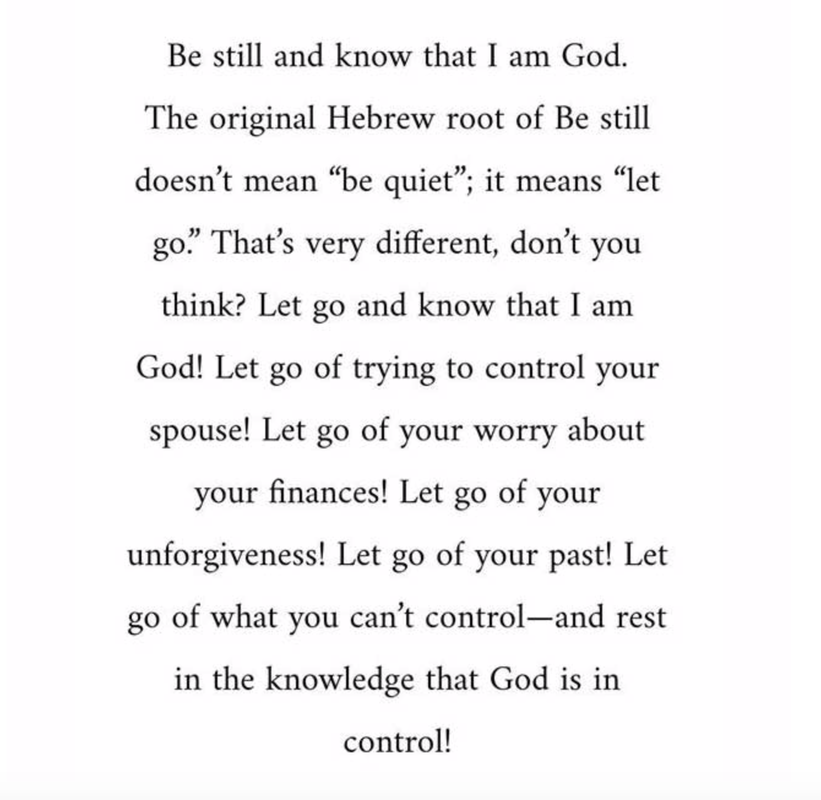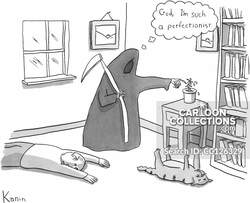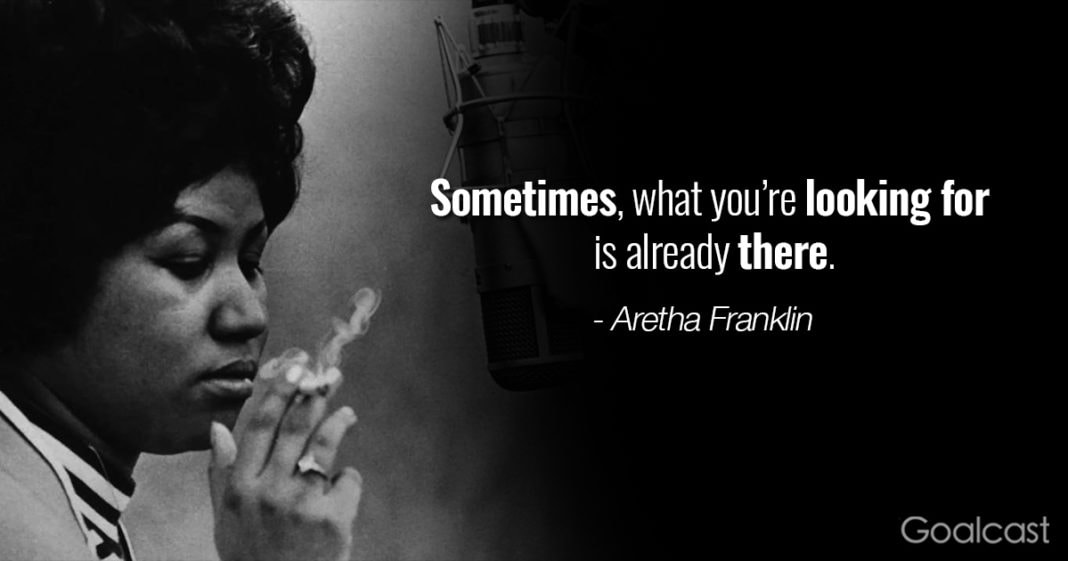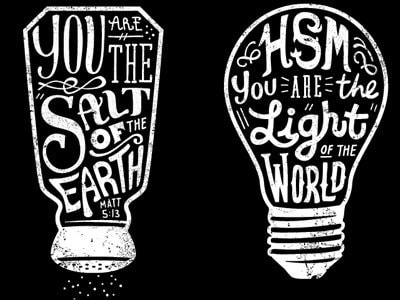With that said, I know there are some people who do that because they feel they are lacking. Maybe you feel like you don’t have enough or that it’s not fair that others get while you go without. There are many reasons why we humans feel the need to hoard our stuff instead of share it with others. As I type this, my Monopoly cheating spouse is out donating clothes, toys, and board games to those who need them more than we do. Helping others move from scarcity to abundance.
This is the focus of my fast this Lenten season. I have challenged myself to fast from the fear and worry of “scarcity” in order that I might grow in my understanding to feast on “abundance.” My kids just stared blankly at me when I told them what I was doing. And you may be wondering yourself why on earth I wouldn't just give up cussing or over eating at dinner. The thing is, I often don't feel like I have enough, or that I am going to run out. There is some truth to it. As I write, and as my Monopoly cheating wife is out donating, the stock market is plummeting. I'm watching all our gains over the last year simply bleed out. But today, I have a home, food, and so much more. Yet... I'm sure a good shrink could tell me why I have this fear of scarcity. Why I feel like I don't have enough. What I do know is that it has crippled me in more ways than I can express here. For whatever reason,And the more I aquire the more I need. It's a vicious cycle. And so I will focus the next 40 days Whether it’s a real need or an illusion, I have spent a lifetime chasing after more. More love, more sex, more food, more work, more people to minister to, more likes on Facebook, and more friends to feel more liked, love or important. This mentality hasn’t really worked in my life any better than it works in society. More often than not, it causes us to hold tightly on to things that may or may not be good to hold on to. Crippling fears and anxieties, rage and anger, hurts that take up valuable time and space in us, stunting our spiritual and mental growth. Yet we hold on to this junk; making it a god that takes instead of gives abundantly. Think about all the counties that hoard natural resources, fearing they will run out. Worse, they use their supply as bargaining chips to control or oppress others who are in need. Across our own nation, there are thousands of solos filled with wheat that American farmers are paid to hoard to protect its market value while people in the world starve. When we feel this fear of never having enough, we will do anything to claim it or hold on to it. But eventually people will cheat or simply take what they need or feel they lack. And will do so using any means necessary. I don't want to have this feeling of scarcity in me. I don't like what it makes me feel like, or what I am afraid I might do. For the next 40 days I’m going to let go of this fear and grab hold of God's words of promise. I am going to live life, and to live it abundantly knowing the scales of God’s blessings and grace are balanced in my favor. Stacked and piled high with God’s great abundance which is all at my disposal. In this I know I am not without but always within God’s love and longing for me. Knowing that God longs for me, I know that God is looking out for me. And if God is looking out for me, then I have all that God gives to me in this very moment. This is why I am going (need) to fast from this idea of scarcity and focus on the abundancethat is already given to me. I have all I need for this moment - my daily bread. I invite you to do the same. Maybe in the end of the 40 days we’ll have a better answer about what to do about being more abundant humans locally, nationally, and globally.
0 Comments
Lent offers us a journey inside ourselves to discover, discern and deliberate. no doubt this will be difficult. Expect to fail. Enjoy.“I suck.” “I can’t.” “I quit.” “I’m done.” “I’m outta here.” Which of these phrases have you said in the last week or even the last 24-hours? For me, it’s impossible to count because while I may not say them out loud, I’ve think them quietly in my head. These words and phrases have haunted our lexicon for as long as I can remember. They are ingrained in our thinking, our speaking, and in our doing. If these words have taught me anything it’s that I’m taking serious notice about how using them have stunted my mental and spiritual growth. Most likely, they’ve done the same to you. There’s an age-old axiom that asserts negative thinking only leads to negative action. That is to say, if you believe it to be true than it will become true. First in your heart and then in your head. From there it spills outwardly through your actions. Thinking you’re not good enough or smart enough or even strong enough to do something will eventually lead to you to believe that you are not able, even if you actually are. Of course, there will be times when you have to cut yourself free; when your health or safety is threatened, or when you find yourself in a toxic relationship that isn’t helping you to be a better person. It could be a marriage, a bad job or employer, or an institution like politics or religion. There are bad things in life that only bring out bad thinking which then produce bad results. So, we cut them out. This leads to a bigger question. How do we fill the void that is made when we cut out that negative content? The goal is to fill it in with something positive, right? Something that will help you grow, mature, and produce goodness within that will spill out into the world. At least, that’s what we hope is the outcome. And this is not easy, nor is it without pain. You are lopping off a part of you that has been with you for a long time. That separation is hurt at times. And most likely, it’s gonna scar. Life is hard. And there will be times we want to quit or give up. But why throw the baby out with the bath water? When I was a copywriter in advertising, I had a habit of cutting my last sentence of body copy and pasting it to the beginning. Pretty much every time I did this, my copy would become better. There will be times in life when you have to do a little cutting and pasting. Taking out the negative and pasting in something positive in its place.
Which brings me to what I believe the season of Lent is all about Fasting and feasting. It’s not just about removing something in your life but replacing it with something good. What does that mean? Well, most of us know that Lent is about fasting from something – like chocolate or alcohol or something that doesn’t require much effort from you. The problem is stuff like that isn’t life changing. It doesn’t transform you to become something better. Or we try to up our fasting game, and then give up when we can’t manage to go three days without cussing or smoking. That makes sense because we live in a culture where there is great pressure put upon us to succeed, and to be the very best at whatever it is we’re supposed to be the best at. I propose a different approach, one where failure is the key to your success. It begins with fasting from something that isn’t producing the fruits of life in you. Giving up chocolate might be good for your teeth or diet, but it really doesn’t affect the way you treat others or allow others to treat you. So, first and foremost, look within yourself to see what things are causing you to struggle with being your best self. Make a list and then pick one that will challenge you to the point of failure. But there’s more to simply starving your soul. You also have to fill that space with goodness. You have to feast on something that will counter balance the bad thing you’re fasting from. For example, let’s say you’re spending way too much time on social media. You choose to spend the next 40 days fasting from it. So what then will you do with your free time? How about feast on writing letters to friends in lieu of simply slapping a zany emoji on their post. Maybe you have a lot of judgment in your life. How about cutting it out and feasting on acceptance. Teach yourself how to love instead of hate. There hasn’t been a better antidote to negative words and actions like the healing balm of love and kindness. It’s important to remember that the anger or judgment or fear that you’re cutting out of you begins with YOU. No one lives closer to you than your own self, warts and all. Growth, both spiritual and psychological, begins with an honest look inside your heart and mind. It requires a little sleuthing around your story and history. You need to embrace and understand it so you know exactly where to cut and let go. Once it’s out, then you can fill that empty space with what your heart truly desires- peace, love, joy, etc. Lent offers us a journey inside ourselves to discover and discern and deliberate. No doubt this will be difficult at first. Expect to fail. Expect to suck at it. And when you say things like “I can’t” or “I quit” remind yourself of what you are fasting from and feasting on. Failure is a gift. It leads us to the solutions and answers we seek. Failure allows your heart and head to see an old problem and to shift into a new paradigm of thinking about who you are. Lent is about learning to embrace failure. That is the goal because through it we grow into who we want to be. In failing we see where we went wrong or how we’re straying from our goal. It allows us to cross that certain thing off the list of possibilities to narrow our focus as we move closer to where we want to be. Failure is to be embraced. It’s not a weakness but your strength. This truly countercultural. It goes against our American mentality by redefining what success looks like. The more you practice it (like a 40 day challenge) the easier you begin to think, feel and love. You redefine yourself, with a new paradigm of how you see yourself, and how you live that self out into the world. The more you fast from the things that hold you back, the more you are able to feast on the things that expand you with the abundance of life.
Have you experienced similar frustrations? Have you tried to leave your old self behind and start something fresh and new only to discover the only thing that changed was your address? When this has happened to me I am discovering it's easier to embrace my most ugly or hated parts of me then it is to try to pretend they aren't there.
I'm learning it's in this embrace that there is something else at work. A powerthat seems hidden or unseen until you realize you are no longer who you once were. You've been transformed into someone new. Call it God. Call it grace. Call it dealing with your crap. What ever you name it, one thing remains true. It's a part of you like everything else. However, it's a gift or a new birth of sorts. One that welcomes you with Love, and loves you in our nakedness, accepts you unconditionally despite your brokenness, and empowers you to become what you were always intended for be. A love maker, not an escape artists. (1) Chadwick, Owen. Western Asceticism, ed., trans. (The Westminster Press: 1958), p. 92.
Be perfect as God is perfect. Who’s in? Better yet, who’s terrified? Let’s face it, Jesus is good at scaring us – challenging us to do what seems impossible by human standards. He calls us into the kingdom of heaven where people love and pray for their enemies, give to those who beg, and turn the other cheek. His is a world where vulnerability is a strength.
On this mountain top, Jesus reorientates the way we see ourselves and others. To be perfect as God is perfect. So why does it feel like a set-up? By definition, to be perfect is to have the required characteristics to be as good as it is possible to be. In his remarkable career Kobe Bryant never stopped perfecting his game. He drove himself to be the greatest athlete in the NBA. But truth be told, he was just trying to outdo what Michael Jordan had perfected. LeBron James is doing it with Kobe. And now the Greek Freak has his sights on besting LBJ. By definition, there can only be one at the top. And Jesus makes it very clear who the GOAT is. Now think about all the hard work you put into pushing yourself to be the perfect parent, the perfect child, the perfect student, employee or spouse. This pursuit often ends in discontent for the simple fact that no one is perfect. “If you expect always to succeed, life will always disappoint you,” writes Andrea Brandt. We can strive to be perfect, but each time we come up short we’re at risk for a whole host of issues, from depression to eating disorders. No relationship will work if you demand perfection all the time. But here’s the problem. We live in a culture where being perfect isn’t good enough anymore. And it’s causing all sorts of disorders in our communities. After years of buying into the hype my daughter Fiona admitted that “Outside Harry Stiles, perfection isn’t real.” But her sister Colleen sees it differently. Even though she couldn’t define it, Colleen said “I know it when I see it.” So what does perfection look like to you? A perfect score? Being the greatest of all time? Maybe it’s material wealth or obtaining financial success? Jesus boils it down to one word: love. And not just any kind of love – but God’s unconditional love for you and me. We may not be very good at turning the other cheek, or giving our stuff away, or going the extra mile for someone we don’t like. But we can still be perfect as God is perfect by being a community shaped in the very heart of God who loves the unlovable, and gives extravagantly to anyone who asks.
watch the message here
This is the blueprint for the life of the church. A constitution for a new society made perfect in Christ despite our imperfections. We will struggle and failure is guaranteed. And that’s good. It’s in our faults and failures, we see our place in God’s love and grace. But more importantly we begin to really understand our relationship with our Creator, and with one another.
Jesus devoted his entire ministry to show us how to be a loving community where people put others first and where everyone strives for the common good. It was his life work to embody these values that some politicians today will criticize as being socialist or unAmerican. We are called first to be obedient to a higher authority. By looking at Jesus, and loving as he loved, we see that the kingdom of heaven has come. It’s here, today. In Christ, we come to know and understand God’s will for us, which is to live in imitation of the One who loves and blesses us all the same. In Christ, God became human so we will come to know what it truly means to be human. To be beloved children of God. But not everyone will live out their belovedness in accordance to God’s righteousness. Some will even try to take advantage, believing we are doormats and pushovers. Yet we are called to lead the way, following in the footsteps of Christ, as a community alive with the heartbeat of God. A community that embraces the gospel fully no matter what. To be perfect as your heavenly father is perfect isn’t about being a perfectionist. It’s about discipleship. It’s less about getting things right and more about sharing God’s love in all our everyday messiness. Last Tuesday, I went to the Union Rescue Mission, where a group of little Mother Theresa’s work tirelessly to feed and house and assist thousands of homeless people a day. For 127 years, URM has been sharing the gospel on Skid Row. And not just preaching it, but actually living it as if Jesus really meant what he said. I believe this is how we become perfect as God is perfect. To use all the abundance God has given us to make heaven come alive on earth, right now. You don’t have to work in a homeless shelter to help a person on the streets. You don’t need a medical degree to make someone feel better. All you need is a heart. God’s heart in particular. And a willingness to share it. At the end of his book, Growing Into God, John Mabry reminds us that, “God never called any perfect people because there aren’t any perfect people. God only ever calls flawed, wounded, limited, scared, and imperfect people because that’s the only kind there are. So, don’t be discouraged, you’re actually a pretty good company.” Jesus calls you and me to be a visible community sharing God’s love in our every day. No matter who you are, no matter what you’ve done, or where you come from, the good news is this: you are loved, and you are love. A noun and a verb. You’ve been blessed by God to be God’s blessing to all. And so, I encourage you to embrace God’s love and to be God’s love out into the world as Jesus did. Through him we are made perfect and flawless, united with God as one perfect heart and life, now and forever Amen. Work Cited Bartlett, David L. and Barbara Brown Taylor, eds. Feasting on the Word, Year A Vol. 1. (Louisville: Westminster John Knox, 2010) pp. 38-385. Brandt, Andrea. The Dangers of Perfectionism. April 1, 2019 (https://www.psychologytoday.com/us/blog/mindful-anger/201904/the-dangers-perfectionism?amp). Accessed on February 21, 2020. Mabry, John. Growing into God: a Beginners Guide to Mysticism. (Wheaton, IL: Quest 2012) p. 120. Create Space for the Stranger By Henri Nouwen In our world full of strangers, estranged from their own past, culture, and country, from their neighbors, friends, and family, from their deepest self and their God, we witness a painful search for a hospitable place where life can be lived without fear and where community can be found. Although many, we might say even most, strangers in this world become easily the victim of a fearful hostility, it is possible for men and women and obligatory for Christians to offer an open and hospitable space where strangers can cast off their strangeness and become our fellow human beings. The movement from hostility to hospitality is hard and full of difficulties. Our society seems to be increasingly full of fearful, defensive, aggressive people, anxiously clinging to their property and inclined to look at their surrounding world with suspicion, always expecting an enemy to suddenly appear, intrude, and do harm. But still—that is our vocation: to convert the hostis into a hospes, the enemy into a guest, and to create the free and fearless space where brotherhood and sisterhood can be formed and fully experienced. When an alien lives with you in your land, do not mistreat him. The alien living with you must be treated as one of your native-born. Love him as yourself, for you were aliens in Egypt. I am the Lord your God. - LEVITICUS 19:33-34 (NIV)
Yesterday was such a day. Empty. Starving. Abandoned. I could hear the engines and hammers of life around me but not the echo of my own heartbeat within. I suspect we all fee that way at times. Like something is missing. Stolen away in the night. A runaway that leaves no note or any trace behind.
There are those times, those days or weeks or even years, when you open youself up and see nothing. The pages in the story of our life are ripped out. Or worse, they're erased. The lessons of your heart forgotten. Even the sense of spirit, or nagging hopelessness missing. That was yesterday. I sat in the kitchen wondering where it all went? Looking at reminders of the fullness of life that others were devouring like cereal in a bow full of milk. I sat there, literally on a “pouting chair” that someone gave us years ago. Don’t think I didn’t notice the irony. It’s what got me thinking. At least I still had irony. And if I have that, there must be more in me. I looked around at that space between me and the rest of the world. There pictures and pitchers, coffee pot and crosses, a stack of mail and a single phone charger...all silently shouting at me. Their own spirit sensing my emptiness. They could feel what I could not. That I needed to be recharged and filled by the very things I be already been given. The spirit I needed was there, but like the silence within me I couldn’t see it or here it. But it was there - in that space between me and the cupboards and fridge. That invisible energy between atoms and molecules that made up the air I was breathing was a scared space. The spirit and hunger together feeding my soul. I'm guilty of always waiting around for the Spirit to come, often forgetting that the Spirit is always there. It's never left nor has it ever run out. Just as some still look for God out there in a far off heavenly sphere, many of us still think God's Spirit is out there too. Even in my emptiness the Spirit is doing stuff, making things happen. Because the Spirit is always here, in the space between everything. Science proves this idea, too. Revealing to us that the engery of the universe is not in the particles and planets, but in the relational space between them. It's not easy to measure, or control, or predict what it's going to do, or inhibit it from doing what it wants to do. My friend Matt calls this science. But I call it Spirit. Yesterday was that day. A day that I would be surprised all over again. And again. Before I knew it my heart felt full again. I guess there are those times when you have to leave or abandon your own skin to put on someone else’s. To tap into their stocked cupboards and refrigerator to make something out of nothing. Maybe we have to be empty from time to time to be refilled with fresh ingredients. Maybe sometimes we have to let others prepare a meal instead of always doing it ourselves. When we let the Spirit that fills that invisible void make sacred the emptiness inside us, we are never really truly hungry even though we crave and starve for more. Life is delicious that way, isn't it. Today, I am going to stuff myself full of all that it brings. (Burp!)
We don’t know the actual date or the exact words that Jesus spoke, but the Bible said it began with a blessing for everyone gathered there. And with instructions on how to use their blessing to bless others – to be salt and light.
Today, as our country is more divided than ever, Jesus’s blessings and charge are still the same. As we gather today in his name, let us be a united people and faithful community shining God’s righteousness like a beacon of hope in the world. As we continue reading from Matthew 5, it’s important to note that Jesus isn’t saying anything new here. Its Torah stuff found in the book of Deuteronomy. Pretty much all he’s doing is making the commandments relevant to his followers, pushing them to new heights. On the surface it might feel Jesus is demanding a level of perfection that would leave the pope feeling hopeless. In reading the text you might ask yourself “Who could ever live that way?” The answer is, no one can. And that’s the point. No one person can do all that Jesus is asking. But as a community, we can all bring our blessing to help one another. As a Christ centered community, Jesus calls us to love God with all our heart, mind and soul…and to love our neighbors the same. We rely on the righteousness God’s words, and the holiness of God’s children. Jesus said, in Matthew 5:17-20: Don’t suppose for a minute that I have come to demolish the Scriptures—either God’s Law or the Prophets. I’m not here to demolish but to complete. I am going to put it all together, pull it all together in a vast panorama. God’s Law is more real and lasting than the stars in the sky and the ground at your feet. Long after stars burn out and earth wears out, God’s Law will be alive and working. Trivialize even the smallest item in God’s Law and you will only have trivialized yourself. But take it seriously, show the way for others, and you will find honor in the kingdom. Unless you do far better than the Pharisees in the matters of right living, you won’t know the first thing about entering the kingdom.
Like I warned, Jesus sets the bar pretty high, demanding his followers do better at living life than the Pharisees, the ‘holy’ men of the community who make sure God’s law is kept. For these guys law was life. But over time they made God’s laws transactional, quid pro quo…be obedient or else. The Pharisees were so close to it that they forgot that God’s law is the very heartbeat of everything. It was not given to suppress, threaten or shame us into obedience, but to transform us in a way that we can’t help but be obedient.
Jesus makes the claim that he did not come to change the law but to uphold it. I believe him. What would be the point? God’s laws do not change. But if you abide in them like Jesus did, they will change you and the entire world. By upholding the law, Jesus sets the foundation for heaven and earth to be one. Next Jesus said, in Matthew 5:21-26 You’re familiar with the command to the ancients, ‘Do not murder.’ I’m telling you that anyone who is so much as angry with a brother or sister is guilty of murder. Carelessly call a brother ‘idiot!’ and you just might find yourself hauled into court. Thoughtlessly yell ‘stupid!’ at a sister and you are on the brink of hellfire. The simple moral fact is that words kill. This is how I want you to conduct yourself in these matters. If you enter your place of worship and, about to make an offering, you suddenly remember a grudge a friend has against you, abandon your offering, leave immediately, go to this friend and make things right. Then and only then, come back and work things out with God. Or say you’re out on the street and an old enemy accosts you. Don’t lose a minute. Make the first move; make things right with him. After all, if you leave the first move to him, knowing his track record, you’re likely to end up in court, maybe even jail. If that happens, you won’t get out without a stiff fine.
These words might be difficult to hear if you’re planning on killing someone today. As Jesus speaks to his new community, he takes this commandment to a new level…killing people with your words. He tells us to watch what we say because people are watching. They’re looking at this church community – wanting to see how we reflect God in the world. Like the Pharisees, or Jesus? Law or life?
Jesus knows how dangerous words can be. Then used to belittle or hurt others they often escalate into greater acts of violence and retaliation. We need to be careful with our words, and our tweets, because they tell the truth about what is in our heart. Later Jesus will have a confrontation with the religious leaders about purity laws - reminding them, “It’s not what goes into to a person’s mouth that defiles but what comes out.” Before words fall from our lips, they are first formed in our heart. It’s imperative that a community centered on Christ be grounded in his heart, so his words will be ours. Jesus used words to heal and forgive not to harm or punish. His words had the power to transform us all into children of God because his heart was one with God’s love and righteousness. That’s why Jesus said, if you’re at church and your heart is filled with angry words, then leave. It’s more important to seek reconciliation than sing a hymn. Every relationship we have will reflect our relationship with God. People are listening and looking for Christ in our Christianity. Just as our words need to be his, so too our actions must be his actions. By upholding God’s law we too set the foundation for the kingdom of heaven to come. Next Jesus said, in Matthew 5:27-32 You know the next commandment pretty well, too: ‘Don’t go to bed with another’s spouse.’ But don’t think you’ve preserved your virtue simply by staying out of bed. Your heart can be corrupted by lust even quicker than your body. Those leering looks you think nobody notices—they also corrupt. Let’s not pretend this is easier than it really is. If you want to live a morally pure life, here’s what you have to do: You have to blind your right eye the moment you catch it in a lustful leer. You have to choose to live one-eyed or else be dumped on a moral trash pile. And you have to chop off your right hand the moment you notice it raised threateningly. Better a bloody stump than your entire being discarded for good in the dump. Remember the Scripture that says, ‘Whoever divorces his wife, let him do it legally, giving her divorce papers and her legal rights’? Too many of you are using that as a cover for selfishness and whim, pretending to be righteous just because you are ‘legal.’ Please, no more pretending. If you divorce your wife, you’re responsible for making her an adulteress (unless she has already made herself that by sexual promiscuity). And if you marry such a divorced adulteress, you’re automatically an adulterer yourself. You can’t use legal cover to mask a moral failure.
What Jesus has to say about divorce might cause some uncomfortable feelings. I know it all too well. This passage used to fill me with shame until I realized Jesus doesn’t shame people – Jesus loves them and forgives them of past mistakes.
I agree with theologian Stanley Hauerwas who believes Jesus isn’t so much talking about divorce, but about establishing “a community of friendship that is an alternative to the loneliness of the world.” That’s to say, a community formed in Christ’s likeness will be a place where people don’t have to be married for social or economic reasons (which was the norm back then) because it has become place where everyone would be loved and cared for. Jesus shows us that God cares enough to become one of us for the sake of redeeming us. Jesus knows God’s law intimately. It’s written on his heart. His actions reflect God’s love and grace. There can’t be a Christ-centered church if the heart of Christ’s message is missing. Lastly, Jesus said, in Matthew 5: 33-37 And don’t say anything you don’t mean. This counsel is embedded deep in our traditions. You only make things worse when you lay down a smoke screen of pious talk, saying, ‘I’ll pray for you,’ and never doing it, or saying, ‘God be with you,’ and not meaning it. You don’t make your words true by embellishing them with religious lace. In making your speech sound more religious, it becomes less true. Just say ‘yes’ and ‘no.’ When you manipulate words to get your own way, you go wrong.
Dietrich Bonhoeffer wrote, “Oaths are a sign that we live in a world of lies.” His point is this: by taking an oath is like telling someone you’re a liar, except for now. If we actually believe God always means what God says, the same should be true for anyone who claims God’s righteousness in their heart or profess God’s words from their mouth.
We are our word. It’s how a Christ centered community identifies with God. And what it means to be the salt of the earth. God has entrusted us with an important message of hope. People are listening and looking to see if our yes and no’s mean yes and no. Jesus didn’t come to change the laws and prophecies. He came to uphold them – to bring us all together as a united community, redeemed in God’s righteousness and love. By upholding the law, Jesus formed an ethical community where people make amends and accept apologies no matter what. A community that knows your heart well enough to care for it and to trust you because of it. By upholding the law, Jesus created a new kind of community, one that is always there for each other. One that focuses on hope instead of fear. A loving community united in purpose, seeking to build bridges of peace instead of sowing seeds of conflict and discord. Jesus gathers people together in a new way and offers them a new way to live life – a new order of peace and truth – “by making concrete a radical new vision of what it means to be a human person.” This is what it means to be the church, the body of Christ, blessed and sent to be the salt of the earth, a city on a hill and a light to the world. Work Cited: Hauerwas, Stanley. Matthew. (Grand Rapids: Brazos Press, 2006) pp. 68-71 (Kindle edition). I read this today from Henri Nouwen and just had to share it somewhere. What better place than this space that is dedicated to doing this kind of kind work.
"But I tell you who hear me: Love your enemies, do good to those who hate you, bless those who curse you, pray for those who mistreat you. Be merciful, just as your Father is merciful." LUKE 6:27,28,36 (NIV)
You are the salt of the earth; but if salt has lost its taste, how can its saltiness be restored? ...“You are the light of the world....No one after lighting a lamp puts it under the bushel basket, but on the lampstand, and it gives light to all in the house...let your light shine before others, so that they may see your good works and give glory to your Father in heaven.
Coming on the heels of Jesus blessing the crowd, he turns his attention to the disciples who are ready to learn how to take their blessings out into the world. Being a creative teacher, Jesus comes up with two analogies to help them to discover who they are and what they’re called to do. You are Salt. You are light.
To this day, his blessings and analogies still ring true. What Jesus said back then, still matters to us today. We are salt and light. We receive God’s blessing and then are called to be that blessing out in the world for the sole purpose of helping others see, in the good things that we do, how God is at work in their life… so they will respond by giving glory to God. That’s pretty much sums up today’s reading. And what it means to be a Christian, as individuals and as a church. We are salt and light. Any student of science knows salt is an important part of life. It’s a mineral that plays a vital role in hydration and maintaining a balance of electrolytes in the body. Without salt, we would die. Whenever I had a sore throat as a kid, my dad made me gargle with saltwater. A gross tasting magical elixir… which helps to reduce inflammation. If you have sore muscles or tired feet, nothing is more healing and restorative than a good soak in a salt bath. Maybe Jesus uses this analogy to tell us that we play a vital role in the healing and restoration of the world. Salt is also used to enhance the flavor of food. In some households, it’s the secret weapon to enjoying your mother-in-law’s cooking. In our house, one cannot sit at a table without being given a sampler of salts to sprinkle over whatever food has been prepared. Kathleen swears that different salts enhance the natural flavors of different foods. Perhaps Jesus is telling us that as salt we are to elicit goodness and bring out the best in people. Here’s a little known important fact to keep stored in your head. Salt was the main contributor to the development of civilization because it is a perfect way to preserve food for storage or travel. A thick coat of salt can keep meat from being corrupted or spoiled. Is Jesus telling us that we are to be a spiritual agent that stops the spread of bad things from corrupting and harming our communities? Because of all these great qualities, salt remains one of the world’s most valuable commodities. Back in the olden days, was a common practice for Roman soldiers to receive salt as part of their salary. Thus a person was, or wasn’t, worth their salt.
watch the message here
For all it’s goodness, salt also has a bad side. Too much can spike your blood pressure or cause kidney disease, or affect your appearance. In biblical times salt was even used as a weapon. Once it lost its flavor, or its tang as they say in Scotland, one would spread salt on an enemy’s crops, causing the land to go barren.
Maybe that why Jesus warns us not to lose our flavor, our saltiness, so we don’t do harm to others or ourselves. Someone once said, “while we can’t lose our soul, we can lose our savor.” We all run the risk of becoming unsavory – a worthless commodity that does more damage than good. We see this today not only in our politics but even in our churches. It happens when people who call themselves Christians do not stand up for what is right and just. Instead they turn a blind eye or simply put up with the corruption festering all around them. Such people, as the old saying goes, “are not worth their salt.” If there is no Christ in your Christianity, then you have no value in the kingdom of heaven. Jesus said, “You are salt.” But if you lose your saltiness then how will people taste godliness? If you’re going to call yourself his disciple, you cannot lose your capacity to love and value those who are dispossessed. Jesus teaches us the way of godliness and righteousness – always seeking justice and fairness, showing mercy, having integrity, and speaking up and standing up for what is right even if those in power crucify us for doing so. We are salt. We are valuable to God. It’s in the way we live out Christ in the world, that people come to see their worth in God’s kingdom and give God glory. That’s the gospel. To be the salt and light, because human beings cannot live without either one. I might be old, but I do remember some lessons from a high school biology class I had in the early 80’s. One is that light is the main source of energy for all living organisms. It is the essence of life itself. Without it we would literally be nothing. Maybe mushrooms, or mold, but who wants to be something so slimy and gross? In John’s gospel, Jesus said, “I am the light of the world. Whoever follows me will not walk in darkness, but will have the light of life.” In Matthew’s gospel, Jesus is making us light-bearers with him. He’s putting us in the center of the table to illuminate the entire room for others to see how God is present even in the darkest of places. It’s worth reminding ourselves that every day, when light breaks the darkness, there is a new beginning, a new day. Every sunrise awakens every lifeform. So maybe when Jesus gives us this analogy he is reminding us that every day we are given a new opportunity to shed light on God’s blessing for the world to see. God’s light is our light, the light of life itself. Last week, my friend Gianni and I were talking about the affects that artificial light has on our health. Whether it’s the neon numbers from an alarm clock or the glow of a television screen, artificial light disrupts our circadian rhythm – the body’s 24-hour sleep/wake cycle. Science has shown that artificial light affects things like brain wave patterns, hormone production, and cell regulation. It has also been linked to medical issues like depression, obesity, cardiovascular disease, and sleep disorders like insomnia.” Just as artificial light is harmful to one’s health, artificial faith is harmful to one’s spiritual growth. Likewise, real faith, like real light, is life giving. As followers of Christ, we must be his Light – willing to faithfully go to the dark places, bearing the light of Christ in all that we do. Just as the moon, which has no light of its own but reflects what it receives from the sun, we who chose to follow Jesus, are called to reflect his light upon the world. It’s imperative that we not to hide our faith or spiritual gifts but to put them in the center of life – drawing people to its warmth and radiance. We also need to remember that a candle only shines once it’s lit. We cannot bring the light of Christ to others if we refuse to let it shine in our own heart. Our spiritual journey begins with God’s blessing upon us. But it doesn’t take off until we accept that blessing; allowing it to penetrate the deepest and darkest depths of our soul, so that we can fully and truly light up as bright as the Son. By embracing our own blessing, we are able to bless all our relationships in a way that fulfills the righteousness of God – to love as we are loved by God. By truly embracing our own blessing, we are able to demonstrate what it means to have a character shaped by God’s blessing – to be the salt of the earth. We are able to make our words mean something, to live with integrity, to show respect and kindness to one another without fearing how others might retaliate. By understanding our own blessing, we are able to illuminate God’s blessings in those dark places where love is lacking, forgiveness is needed, and where mercy and justice are missing. My charge to you today is to go and be the salt and light of Christ in the world, so people are able to see their value in the kingdom of heaven, to know their worth in God’s glory and shine themselves. This is how Jesus fulfilled God’s righteousness, and blessed the world with love and grace. And this is how we, his followers, are able to abide the same – loving God with all our heart, mind, and soul; and our neighbor as ourselves. Work Cited Bartlett, David L and Barbara Brown Taylor, eds. Feasting On The Word, Year A, Vol 1. (Louisville: Westminser John Knox, 2010) pp. 332-337. Lockyer, Herbert. All The Parables of the Bible. (Grand Rapids: Zondervan, 1963) pp. 146-147. |
Ian MacdonaldAn ex-copywriter turned punk rock pastor and peacemaker who dedicates his life to making the world a better place for all humanity. "that they all might be one" ~John 17:21“Prius vita quam doctrina.”
~ St. Thomas Aquinas (1225–1274) * “Life is more important than doctrine.”
Archives
June 2024
|








